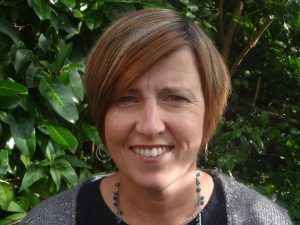 Tell us a bit about your career story so far.
Tell us a bit about your career story so far.
I never planned to be a professor. Originally, I’d planned to go into finance. I did my undergraduate degree in applied statistics at Sheffield Hallam, when it was a polytechnic. That included a year sandwich placement at a head office of a building society in central London and after that I realised I didn’t want to work in London or have a career in finance.
I did a social research dissertation in my final year and was hooked. I joined Sheffield Hallam in 1992 just as it became a University. I started as a research associate on a two-year contract before being made permanent, and then gradually worked my way up through Research Fellow, Senior Research Fellow to Principal Research Fellow. Sandwiched in between these roles I had a secondment for a year, as a statistician for the Housing Corporation in London.
I’d been working here for 20 years and I was 42 when in 2012 I got my professorship. I’d had two spells of maternity leave, so it shows it’s possible to do it within one institution as well as have children and have a life!
Lots of people jump around institutions throughout their career but I think one of the advantages of staying in one place is that you can build a strong team around your rather than having to start again each time. It also worked well for my family.
What does it mean personally to you to be a professor at Sheffield Hallam? What do you value about it?
When I got it, it felt like recognition for all the hard work and how far I’d come.
I think part of me used to think, “It won’t make a difference.” But it does, especially externally, in terms of how people respect your contribution.
If you could go back in time and give yourself some career advice, what would it be?
- You’ve got to make your opportunities as well as take them and this might mean pushing yourself outside your comfort zone. For example, I used to be fine with other people doing all the external talks and presentations. Now I undertake engagement activities with policy and practice communities across the UK including dozens of presentations to hundreds of people each year – it’s now a key part of my job, generates impact and enhances the academic reputation of the University.
- Raise your external profile and reputation. Your colleagues might realise how hard you work and your area of expertise but that won’t be enough on its own to achieve professorship or associate professorship.
- Make sure you get some publications under your belt. It not only helps you evidence your contribution to creating knowledge but also raises your external profile and contributes to REF.
- Network and get involved with relevant learned bodies or journals. Again, it raises your profile, your reputation, and your opportunities.
- I sometimes think there can be a gender divide when people are considering applying for professor or associate professor. Be bold! Don’t be afraid to talk to other people to gauge whether you’re at the right stage to apply.
- Always keep a written record of everything you do, every role, every output, years before you think you might apply for professor or associate professor. Be reflective on your progress over time and identify where you can strengthen your contribution.
Tell us about your work as a professor?
I’m based in the Centre for Regional Economic and Social Research (CRESR). My main focus is research, impact and leadership. My time is spent:
- Developing bids and funding streams for research projects for local and national government, housing associations and charities like the Joseph Rowntree Foundation.
- Managing and delivering those projects.
- Producing applied policy and academic outputs.
- External engagement activities such as giving talks to policy and practice audiences to disseminate and promote my own research findings, CRESR’s research, but also the University. I see myself as an ambassador for Sheffield Hallam in this role.
- Mentoring, nurturing researchers within CRESR, in terms of a pastoral role, methodological skills, and to help them to develop their career is a key part of my job. I’m also involved in mentoring across the University as well as delivering seminars and workshops to staff in academic departments on the importance of maximising the reach and impact of their research.
When I became a professor in 2012, in the wake of the World Financial Crisis and the beginnings of austerity, I started a major ongoing strand of research highlighting the uneven impacts of welfare reform on people and places. To me, that work brings together all the knowledge that I’ve been developing throughout my career journey to highlight: disadvantaged people and places matter, evidence matters, influencing policy matters.
This research demonstrates how you can use data effectively to improve the knowledge base for national policy makers in order for them to recognise that their decisions have very unequal impacts at a local level. The research clearly shows the poorest places are hit the hardest by welfare reform. Being able to use an evidence-based approach to demonstrate this, which in turn challenges and influences policy development or decisions, is the best bit of my job. It has impact, it makes a difference in the real world and I think throughout my career this is what I’m proudest of.